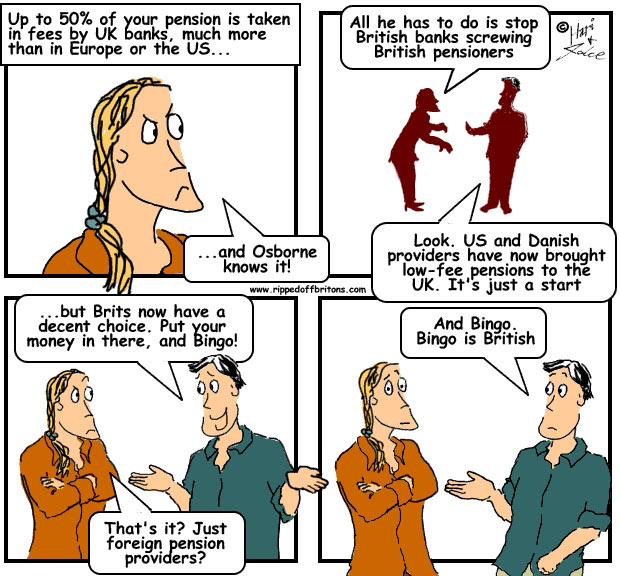Inequality has reduced!
No it hasn’t.
Yes it has! I heard Dimbleby say it on Question Time. And
the Lefties all nodded solemnly.
“...the statistics show the gap is narrowing” David Dimbleby 2nd February 2017
That’s because they‘re
all clueless.
Never!
They don’t realise
they’re only talking about income inequality, not wealth inequality.
What’s that?
Wealth inequality measures
all your assets – property, shares, pension pot, that sort of thing.
You mean the really big numbers.
Right. Income is just
what’s going into your bank account – pay, dividends, pension payouts, and the
rest. Net Income – what they’re referring to when they talk about income
inequality - is all that after benefits and taxes have been added and
subtracted.
Let me guess. Wealth inequality has risen?
You win a free
Question Time T-shirt and nodding duck pencil sharpener. Generally, asset
prices have continued to recover since the bank crash, but the poor hardly have
any assets!
So the gap between rich and poor continues to rise.
Yup.
And what of the gap between Dimbleby’s ears, and the ears of
every card carrying leftie who hasn’t bothered to use this shocking fact that
would make every working hour of their lives so much easier?
Hmm. No official data
on that one. Looks like the Office for National Statistics needs to tear itself a whole new index.
Wealth inequality is
almost twice that of income inequality. The overall Gini coefficient (the
official measure of inequality, where 0=minimum and 1=maximum) for net income
is 0.34, while that for total wealth is 0.64.
Institute for Fiscal Studies: "Household Wealth in Great Britain: Distribution, Compositionand Changes 2006–12"
HRP = age of household reference person
Wealth in Great
Britain is even more unequally divided than income. The richest 10% of
households hold 45% of all wealth. The poorest 50%, by contrast, own just 8.7%.

Equality Trust: The Scale of Economic Inequality in the UK
Office for National Statistics: Total wealth, Wealth in Great Britain, 2012 to
2014 (Chapter 2)
Wealth inequality is
rising. The ONS report says: “In July 2012 to June 2014, the wealthiest 20% of households had
117 times more aggregate total wealth than the least wealthy 20% of households.
In comparison, the wealthiest 20% of households had 97 times more aggregate
total wealth than the least wealthy 20% of households in July 2010 to June
2012.”
It goes on the explain: “Figure 2.10 shows the median household total wealth by the
levels of household net equivalised income. Households in the lowest band of
income had the lowest median household total wealth, while those households in
the highest income band had the highest. During July 2012 to June 2014, households
in the lowest income band had a median household total wealth of £34,000 while
for the highest income group that was over 26 times as big, £225,100. Between
the 2 survey periods shown, the median value for those in the lowest 3 income
bands fell, whilst the median value of household total wealth increased across
all other income bands. The median value of household total wealth fell the
most in the lowest income decile, with a 38% fall seen between July 2010 to June
2012 and July 2012 to June 2014, and the largest increase was seen in the top 2
income deciles, with a 19% increase in the median value seen over the same
period.”
Office for National Statistics: Total wealth, Wealth in Great Britain, 2012 to 2014 (Chapter 2)
The South East’s
median household total wealth (£342,400) is over twice that of the North East (£150,000). It's another sign of the growing divide between the south and the rest.
Office for National Statistics: Total wealth, Wealth in Great Britain, 2012 to 2014 (Chapter 2)
Office for National Statistics: Total wealth, Wealth in Great Britain, 2012 to 2014 (Chapter 2)
The poorer regions
have got poorer. Yorkshire and The Humber saw a fall in median household
total wealth of 8% between July 2010 to June 2012 and July 2012 to June 2014.
Smaller falls were also seen in the West Midlands (2%) and East Midlands (1%).
Office for National Statistics: Total wealth, Wealth in Great Britain, 2012 to 2014 (Chapter 2)
Even income
inequality is on an upward trend, when you include housing costs: essential
costs like rent or mortgage interest, water charges, insurance premiums, and
service charges. This is important as such costs can hardly be avoided. The Resolution Foundation report says “Looking at the 90/10
ratio, income inequality before housing costs peaked in 1991 and has been
largely flat or falling since then. But after housing costs, this ratio was
higher in 2014-15 than at any point in the 1980s or 1990s.”
Resolution Foundation: Living Standards 2017




















































































